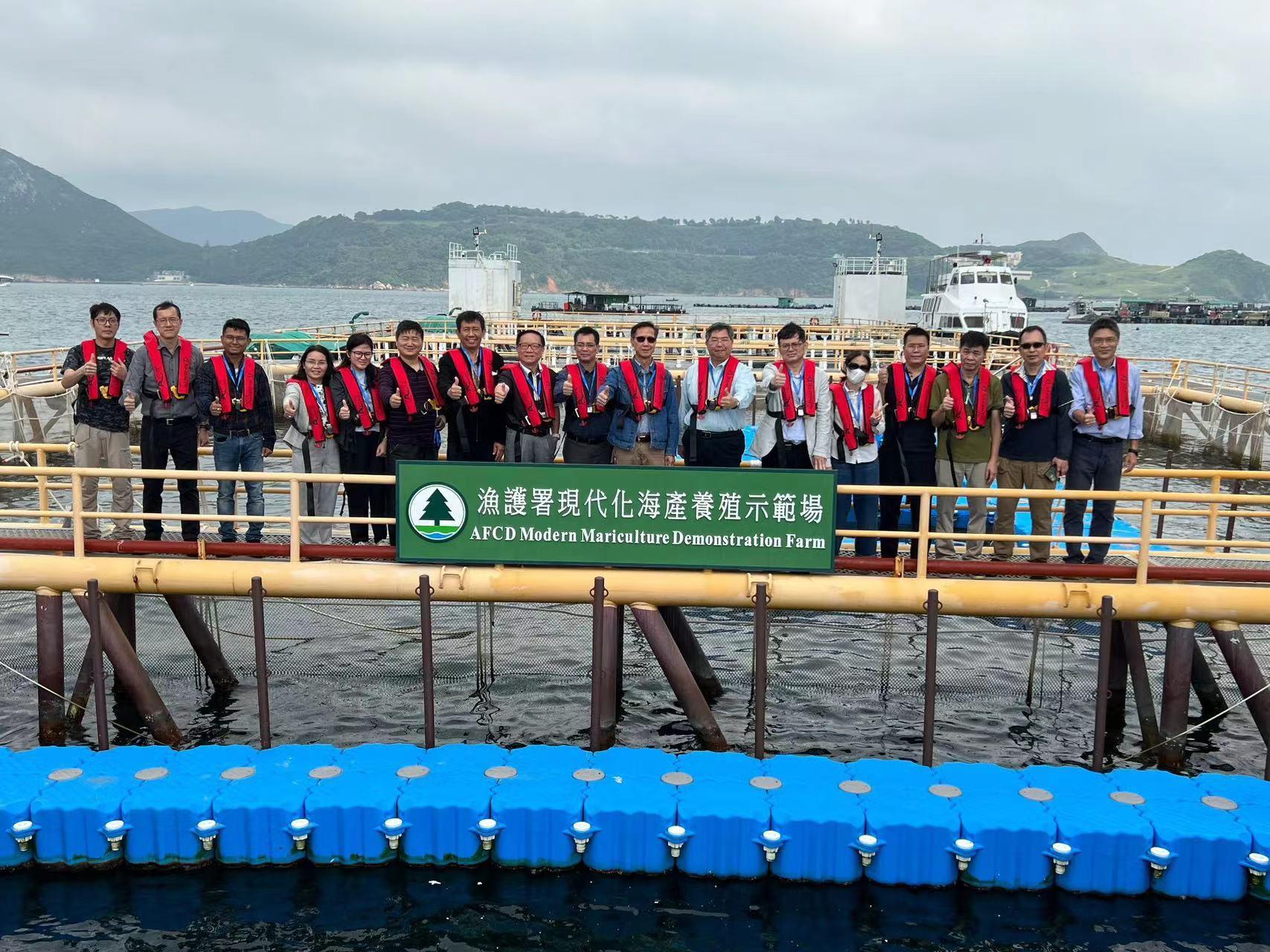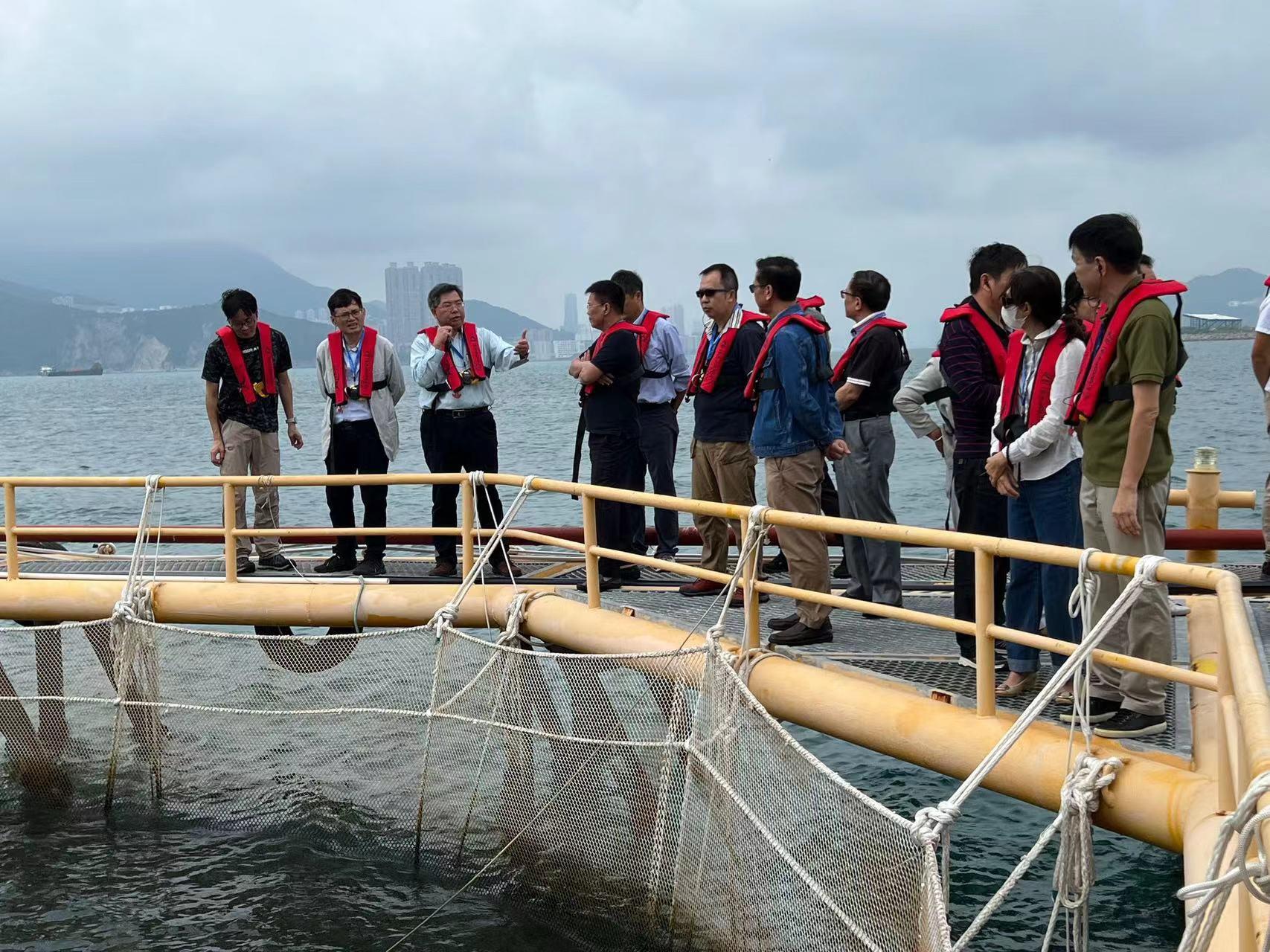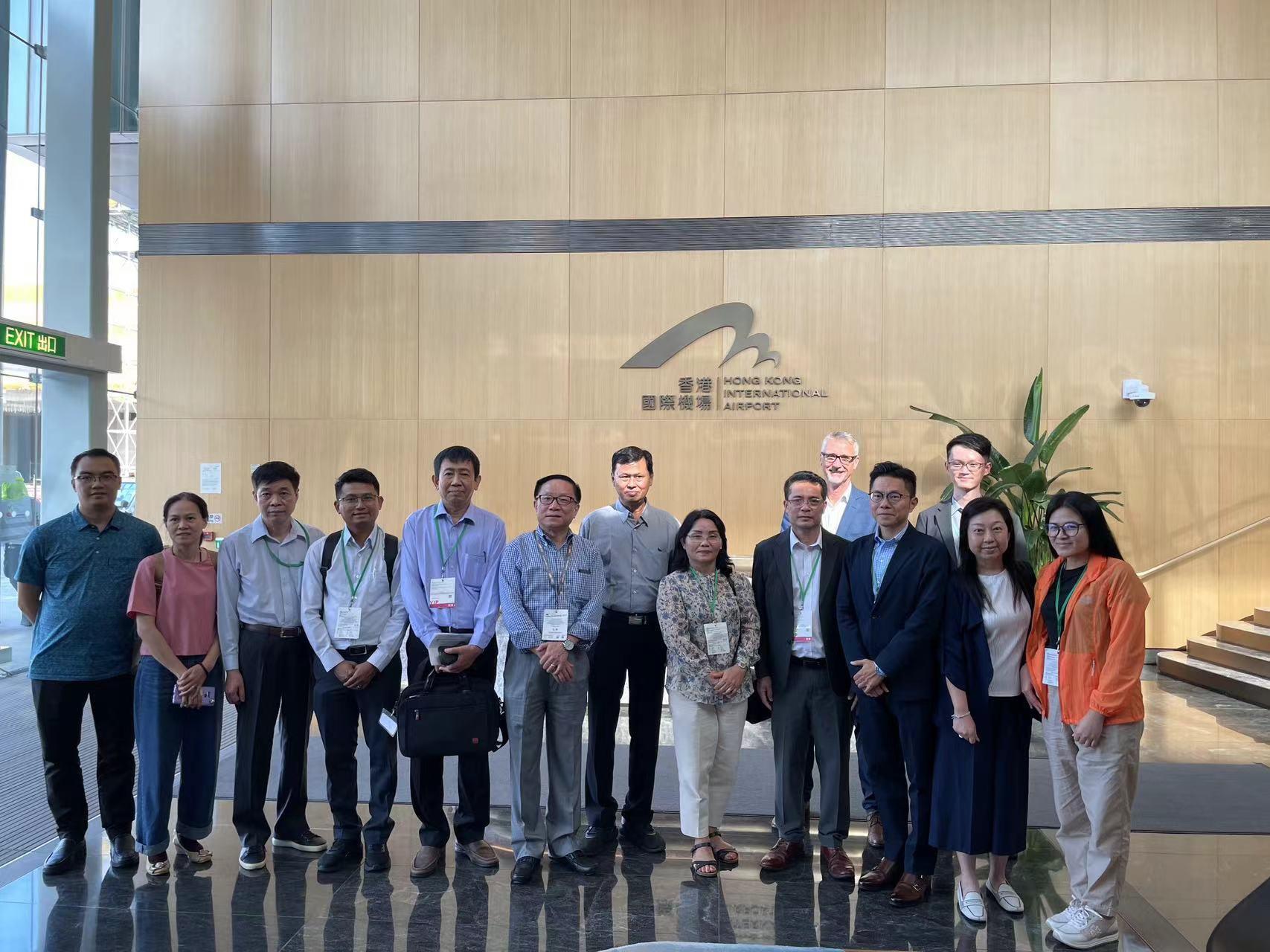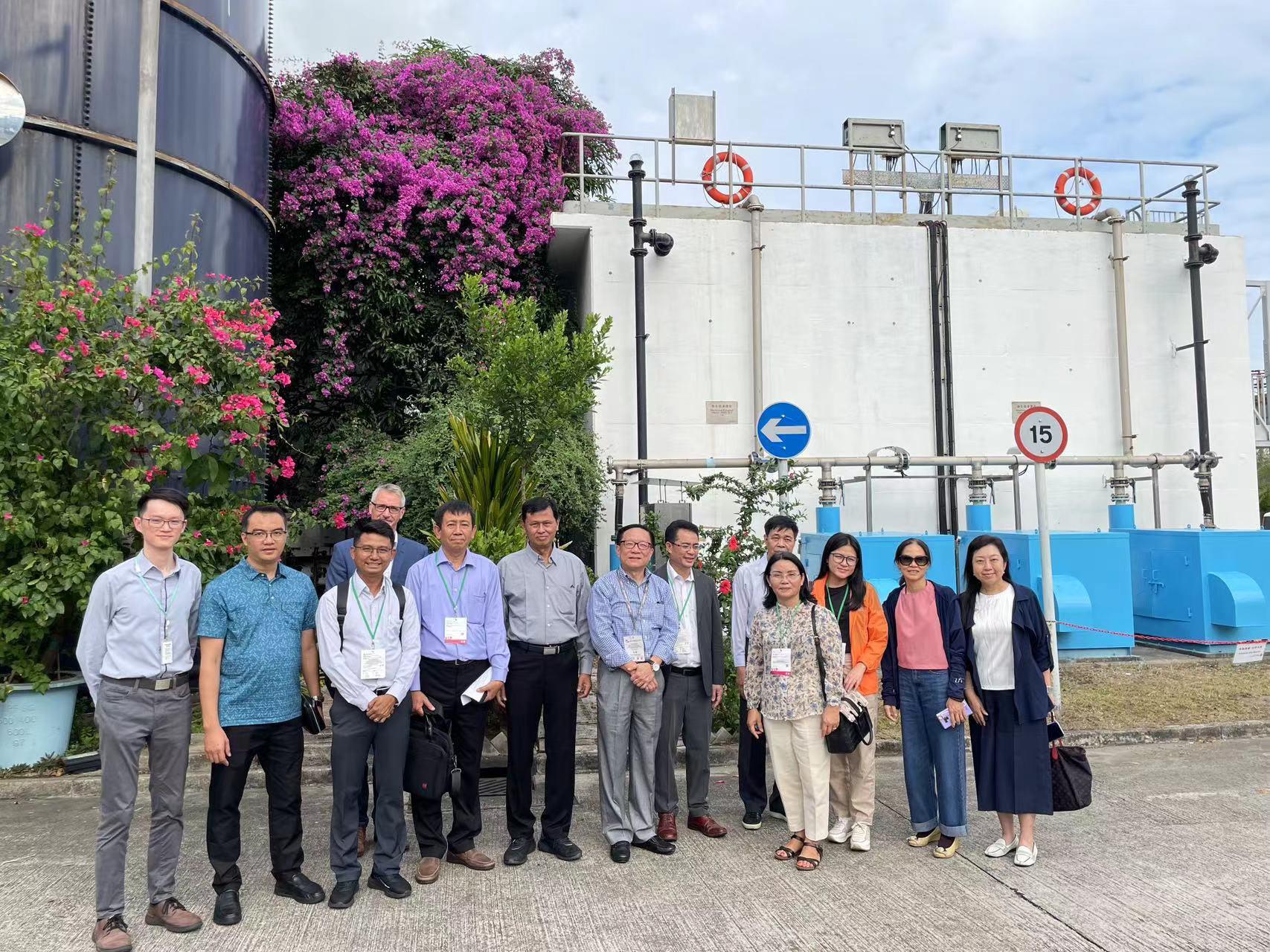The Environmental Protection Department (EPD) and the Agriculture, Fisheries and Conservation Department (AFCD) today (October 28) arranged for delegations from the Belt and Road (B&R) countries (namely Laos, Vietnam and Myanmar) as well as representatives from the Research Center for Eco-Environmental Sciences (RCEES) of the Chinese Academy of Sciences (CAS) visiting Hong Kong to visit aquaculture farms to learn about the latest development of the local modern aquaculture industry.
The delegations, accompanied by EPD and AFCD officers, visited a modern mariculture demonstration farm at Tung Lung Chau to gain a better understanding about the work of Hong Kong in promoting modernised and sustainable mariculture. The delegations then toured a hairy crab and pond fish farm in San Tin, Yuen Long, to learn about the development and management of the local aquaculture industry as well as the AFCD's Accredited Fish Farm Scheme.
The B&R delegation yesterday (October 27) also visited the Triple Water System of Hong Kong International Airport (HKIA), Siu Ho Wan Water Treatment Works of the Water Supplies Department (WSD) and Siu Ho Wan Sewage Treatment Works of the Drainage Services Department (DSD). During the visit, the Airport Authority Hong Kong shared the successful experience of the HKIA's "Triple Water System" adopting seawater for toilet flushing and air conditioning, as well as recycling and reuse of grey water. The WSD introduced Hong Kong's total water management strategy, and technologies of using seawater for flushing and water treatment, while the DSD officers presented to the delegations Hong Kong's experience in sewage treatment and application of renewable energy. The entire system is established on Hong Kong's unique and successful application of seawater flushing technology. This measure not only saves up to 20 to 30 per cent of precious fresh water, but also consumes 50 per cent less energy than supplying fresh water; 10 times less than wastewater reclamation as well as a hundred times less than seawater desalination. Seawater can also be used for central air-conditioning systems, which reduces electricity consumption by 35 per cent as compared with ordinary air-conditioning systems, making it the world's leading water-saving and energy-saving system.
A spokesperson for the EPD said, as the Eco Expo Asia is being held from October 26 to 29, EPD officers promoted multidimensional exchanges with the delegations from B&R countries and the RCEES of the CAS attending the Expo, including environmental water quality monitoring and management, application and development of advanced technology and smart enforcement in environmental protection. In addition, as invited by the Chairman of the Central Environmental Authority of the Government of Sri Lanka, the EPD and the CAS held a sharing session on Water Pollution Control and Smart Enforcement via video conferencing for the officers of pollution control and professional management of the Central Environmental Authority of the Government of Sri Lanka on October 24.
"The Hong Kong Special Administrative Region Government will continue to proactively connect with B&R regions and leverage Hong Kong's experience and advantage in environmental protection, environmental water quality and water resources management, and aquaculture, to assist B&R regions in jointly achieving green and sustainable development," the spokesperson said.
Follow this news feed: East Asia











